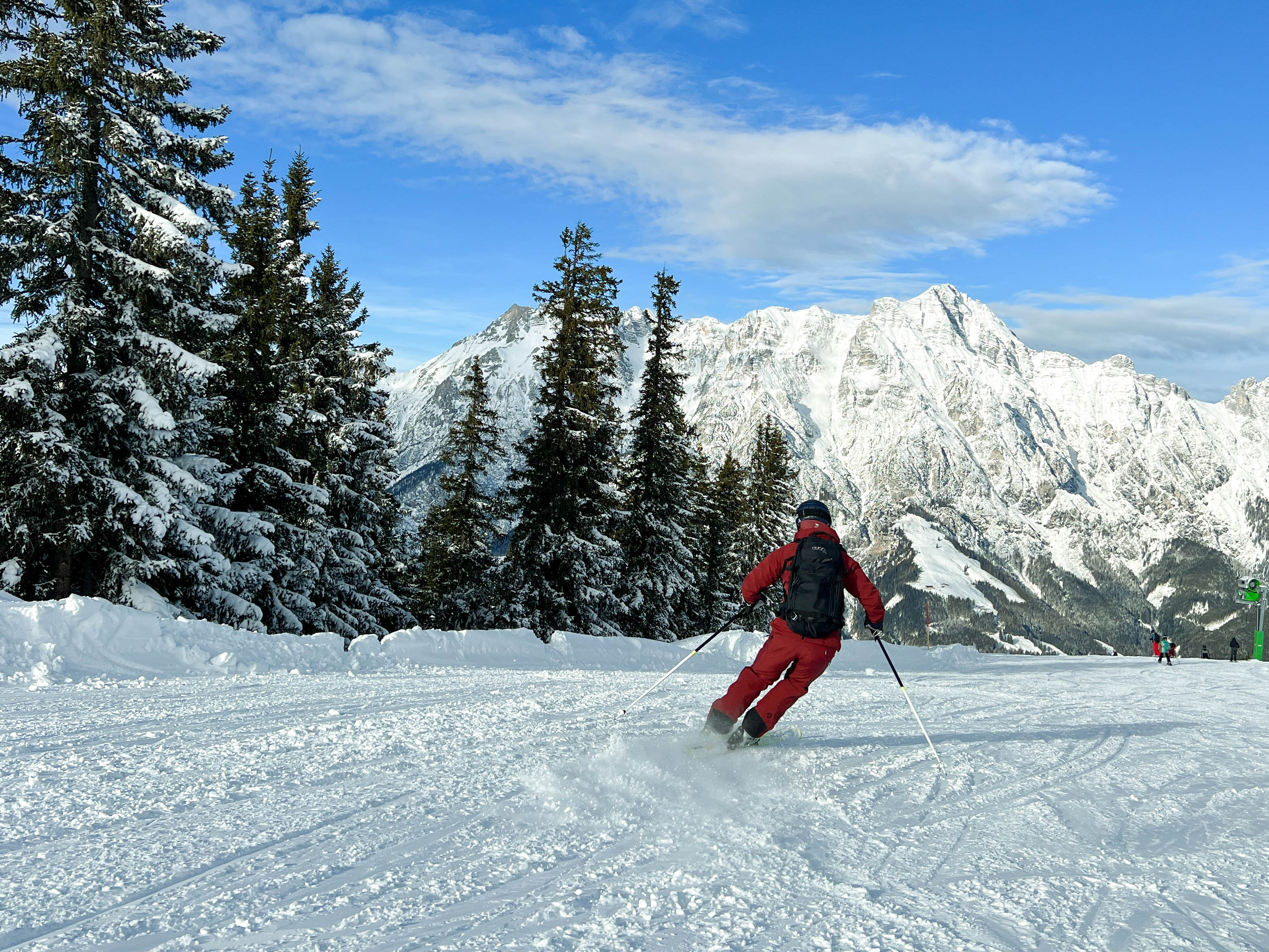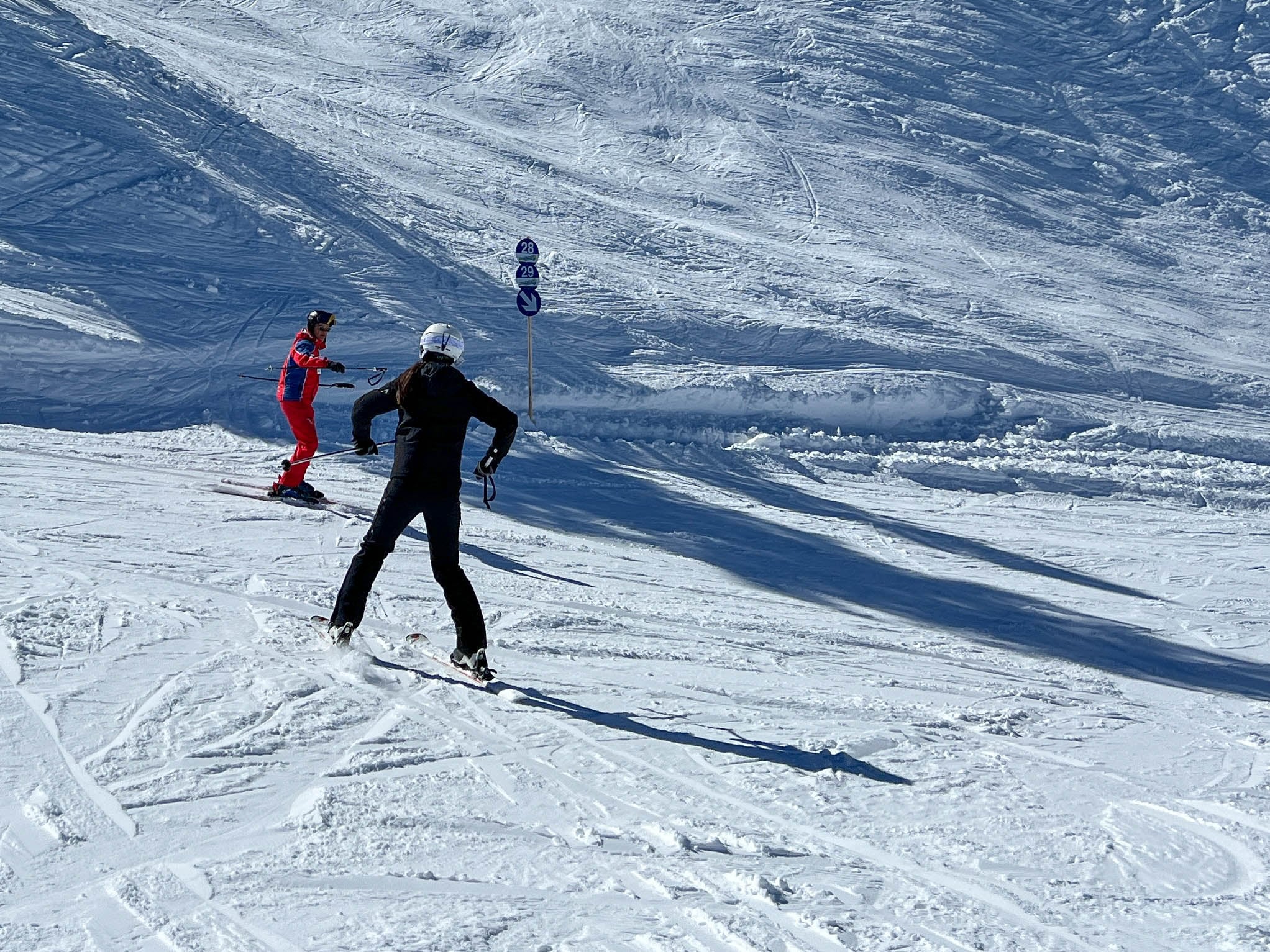

Winter sports holidays are the best holidays of the year, everyone knows that. And not only that, but skiing and snowboarding are actually good for your health. We've always suspected it and now a new study has confirmed even more benefits of skiing and snowboarding: they reduce the chances of suffering depression and dementia.
Skiing and snowboarding are good for your health
At home on a rainy day, it's difficult to drag yourself to the gym. In contrast, you're out of bed and pulling your ski socks on with gusto even before the sun rises during your ski holiday - no excuses! And really, who would pass up the chance to spend all day in the snow, as happy as a kid in a candy shop, challenging yourself to try a difficult piste and stopping every once in a while to enjoy the spectacular views of the mountains all around you? A number of studies have shown that skiing and snowboarding are beneficial to your health - provided, of course, that you don't immediately undo all the healthy effects of a day on the slopes with too many drinks at après-ski!
Study: Skiing and snowboarding protect against depression and dementia
Researchers at Lund University in Sweden compared almost 200 000 people who had participated in the Vasaloppet, an important cross-country ski race, against a matched cohort of less physically active people from the general population. The study followed the skiers from 1989 to 2010 and found that two decades after participating in the race, skiers were 50% less likely to have vascular dementia compared with the general population cohort. By the end of the study, only 233 Vasaloppet skiers had developed dementia, vs. 319 in the general population.
Researchers point to physical activity as reason for lower incidence of dementia
Vascular dementia is caused by impaired blood flow to the brain, such as occurs due to a stroke. Even a mini-stroke that may go unnoticed can cause vascular dementia in the long term. The lower incidence of dementia in the skiers was attributed to their high level of physical activity. Researchers had previously found that Vasaloppet participants were also less likely to suffer a heart attack. Although previous studies have suggested that physical activity can help prevent Alzheimers, the researchers didn't see any evidence of this in the current study. Researchers were optimistic, however, suggesting that although physical activity did not appear to defend against the accumulation of amyloid protein and other molecular processes behind Alzheimer's, it may help reduce the overall vascular damage to the brain and body.

Skiing and depression
The benefits of a physically active lifestyle were most impressive in the case of depression. By the end of the study only 1030 Vasaloppet skiers had developed the illness, vs. 2045 people from the general population. Interestingly, male participants with faster finishing times had an even lower risk of developing depression, but this did not hold true for female participants with faster finishing times, although female skiers were still less likely to develop depression than their counterparts in the general population.
Skiing may also help prevent Parkinson's disease
Researchers also looked at the incidence of Parkinson's disease in the Vasaloppet vs. general population. At the end of the study, 164 people from the general population had been diagnosed with Parkinson's, compared with only 119 among the Vasaloppet skiers. Unfortunately, the benefits conferred by an active lifestyle appeared to diminish over time in the case of Parkinson's disease. Researchers proposed that physically active people may have what they termed a 'motor reserve' that postpones but does not completely defend against the onset of the disease.















